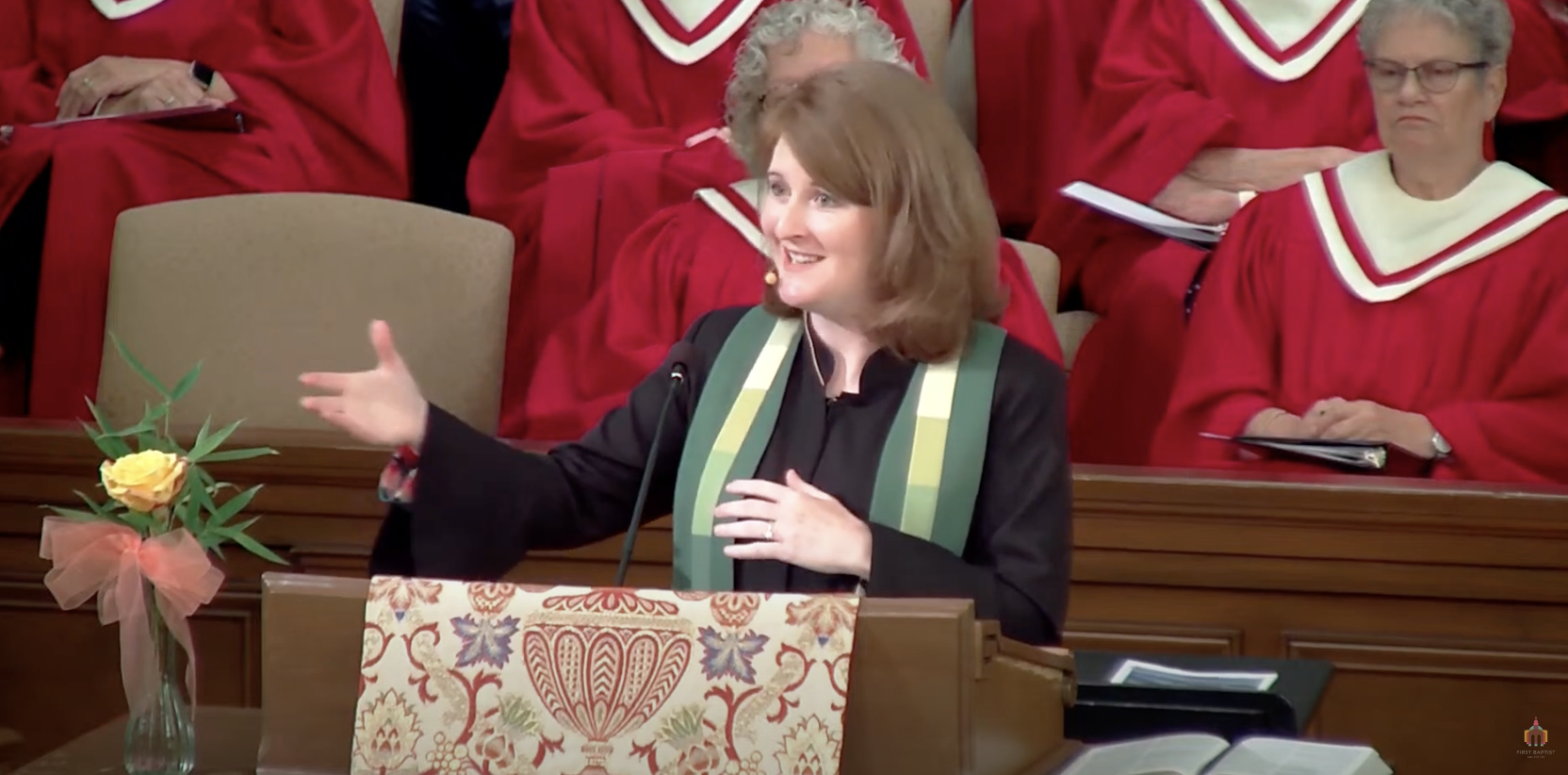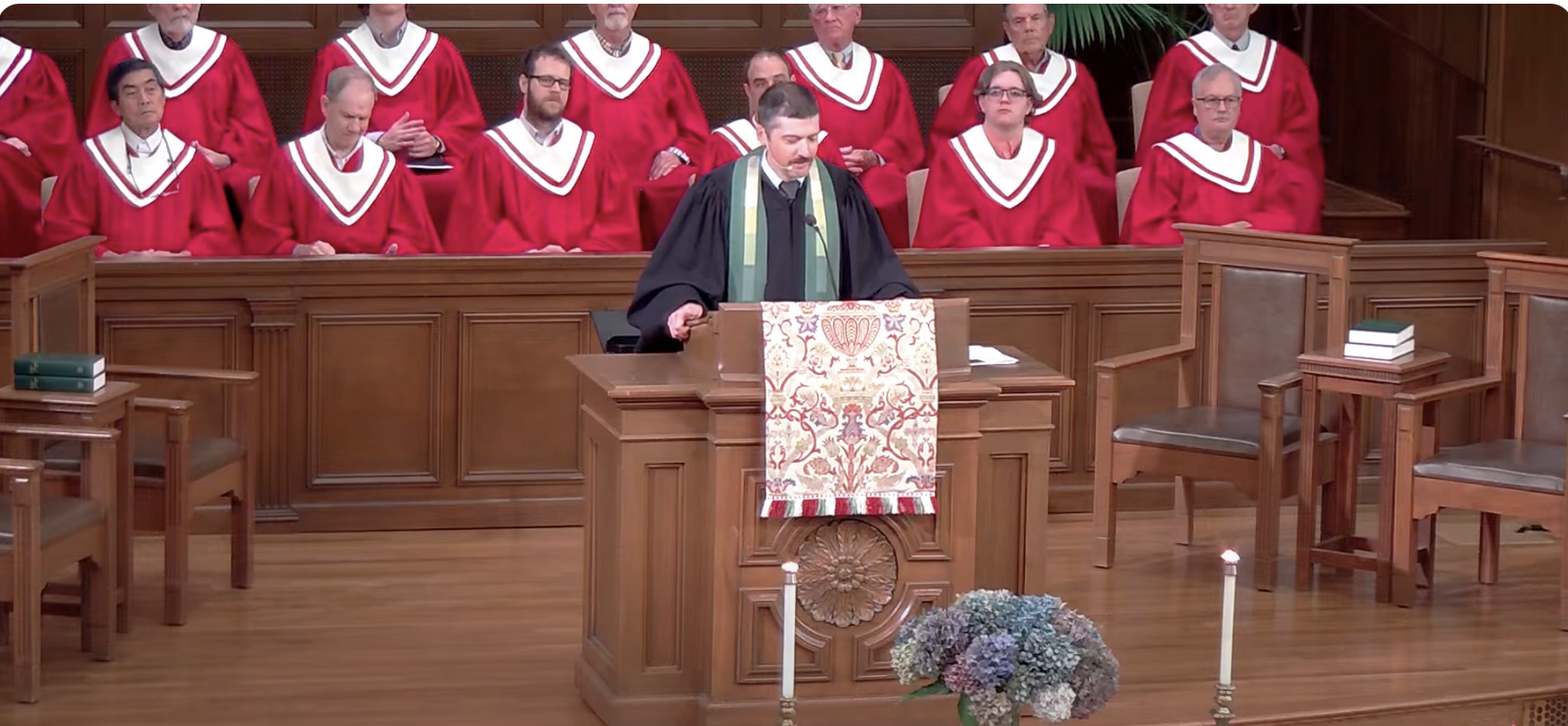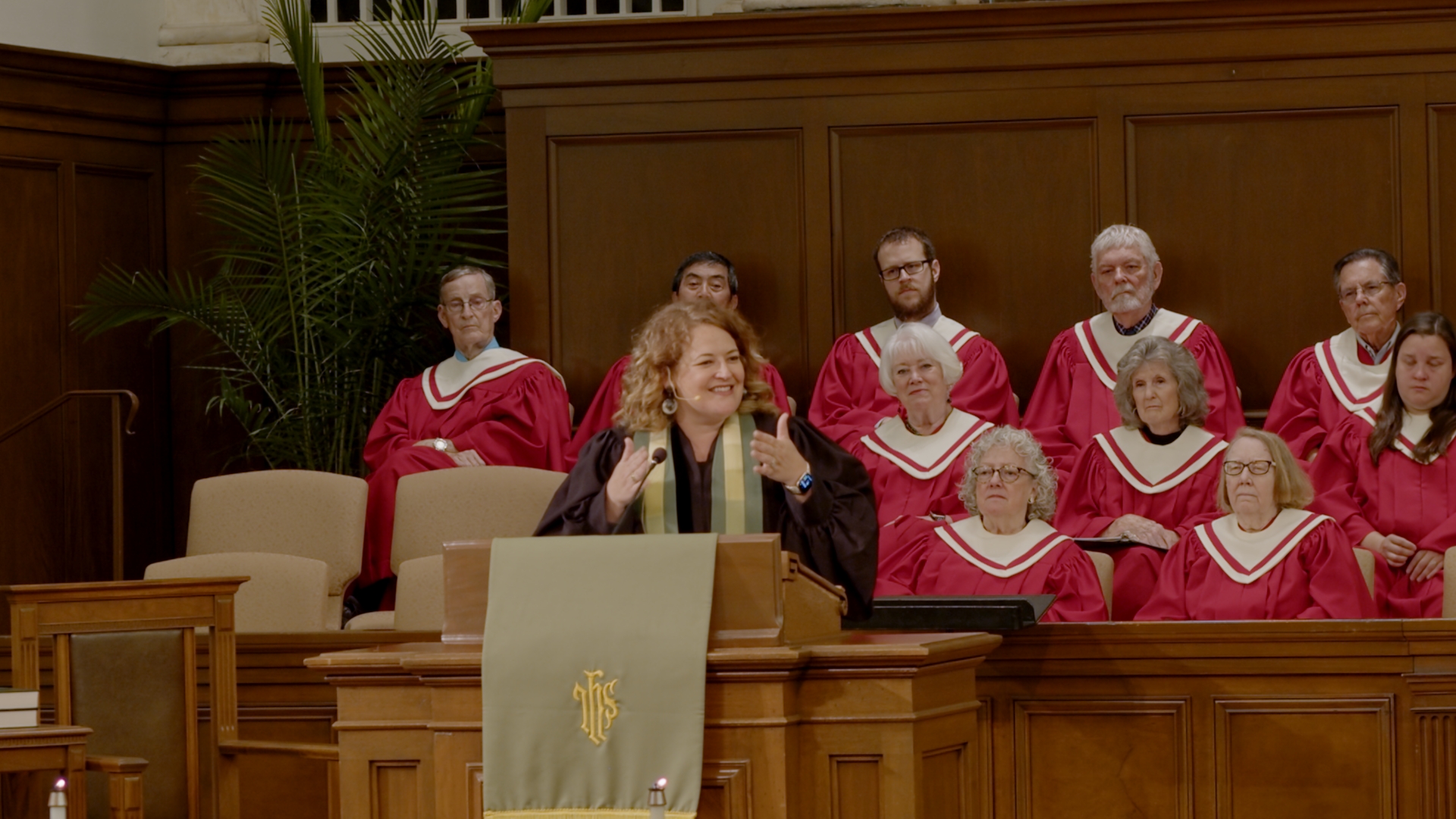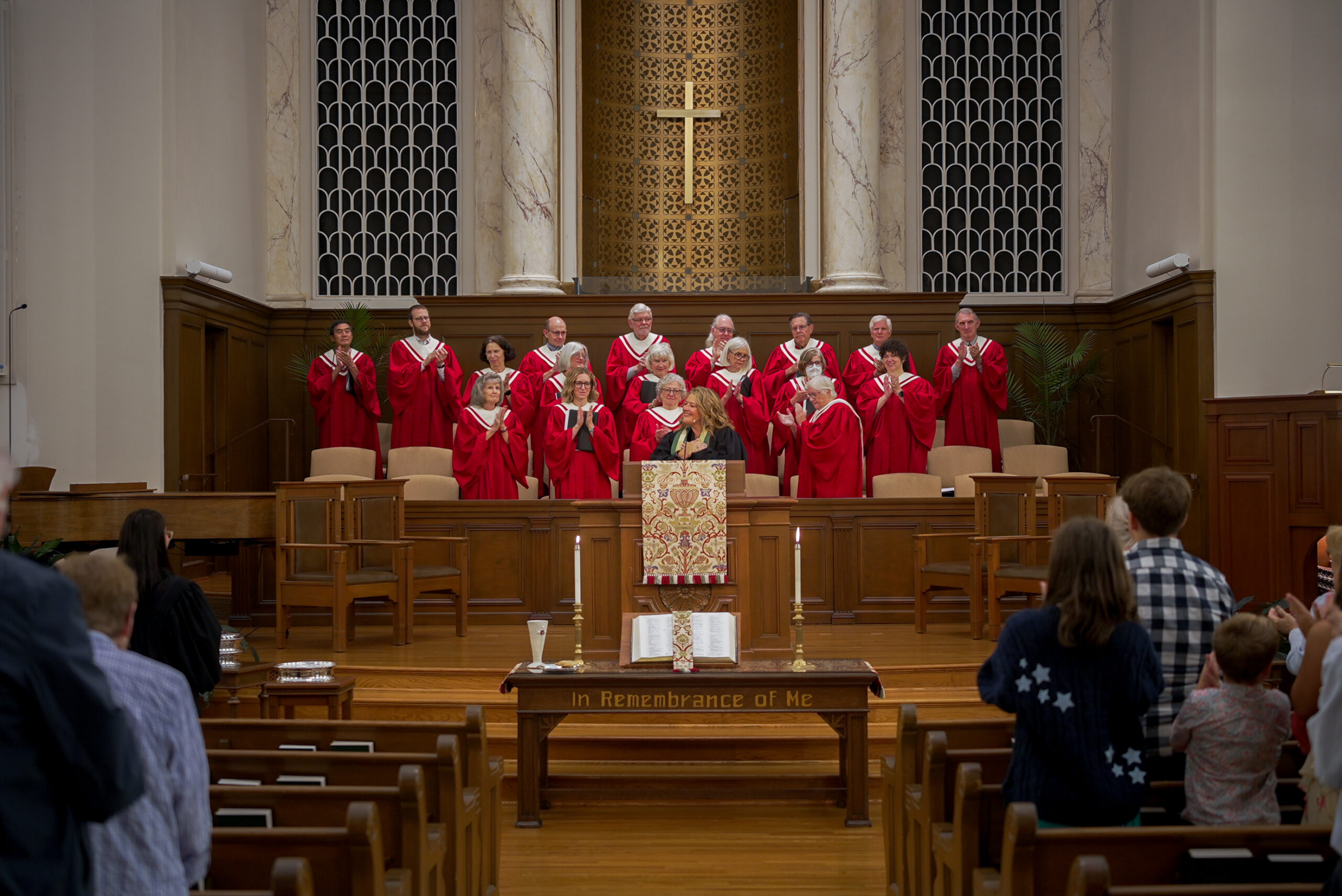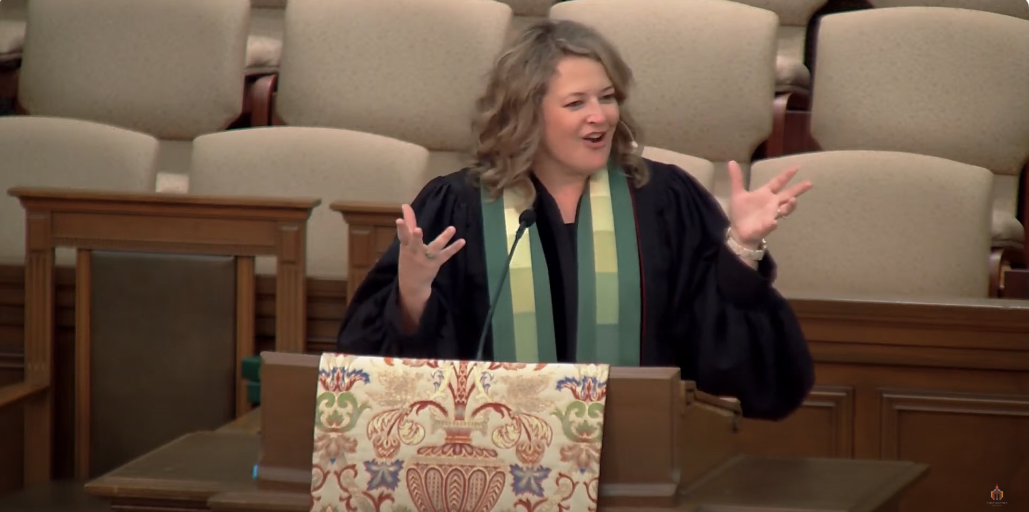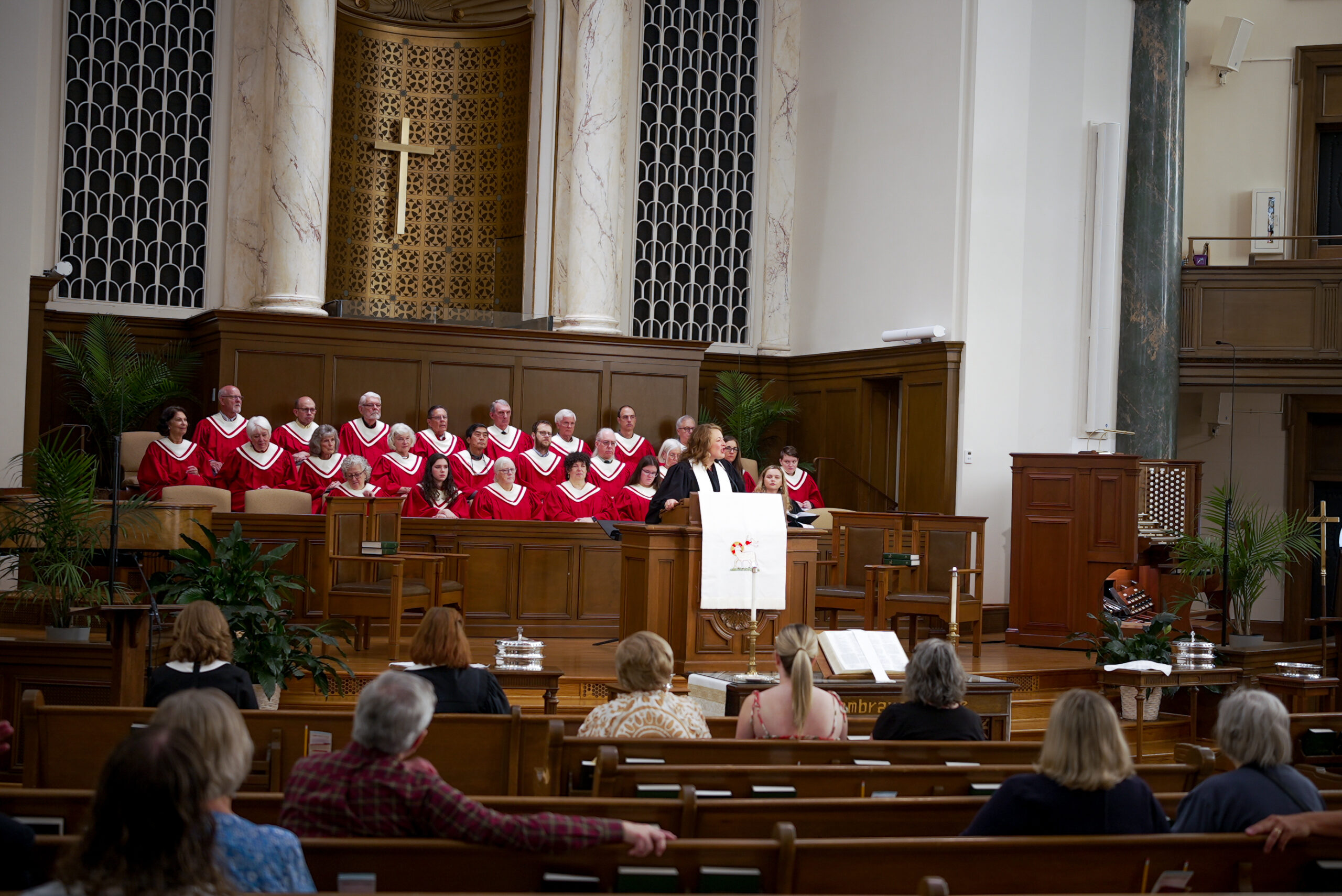I.Perhaps you know Parker Palmer – the theologian and author and speaker whose book, Let Your Life Speak, is the one we give to our graduates and who is beloved by so many all around the world. Some years ago before his demanded schedule slowed, he was visiting his mother, who at the time was in her eighties. She didn’t quite understand what her son was doing for a living, why he didn’t have a real 9-to-5 kind of job. With patience and I’m sure a hint of an eyeroll, Parker explained patiently to his mother that he visits all sorts of people – churches and universities and corporations – and teaches them. “I see,” she said. “You talk to people and they pay you for it?” “That’s right, Mother,” he said. “I talk and they pay me. That’s what I do for a living.” “Well,” she said, “Parker, I like it when you come to visit and talk to me, but I certainly wouldn’t pay you to do it.”
As Jesus said, “prophets are not without honor, except in their hometown, and among their kin, and in their own house.”
II.We’re spending our weeks in the unfolding ministry of Jesus as told by the Gospel of Mark, listening to how Jesus defied the norms of the day and responding in kind. And held today within our worship, between baptism and communion, I think we find two lessons here on loosening our grip – the first, found when Jesus returned home, and the second, found when the disciples are sent out.
First – the return. Mark tells us that Jesus has returned home to Nazareth after traversing the countryside, criss-crossing the sea of Galilee: healing, calming, teaching, telling stories, performing miracles, eating meals with the wrong people, angering those in charge. He’s stirred up enough trouble by now for word to make it to Nazareth, probably passed from one enemy to the next all the way down the road, like any gossip about your life that arrives home before you do. Jesus was in the synagogue that day to teach, and those who heard him that day responded like many others had along the way. They were astonished, Mark tells us. Where did this man get all this?, they ask. Isn’t this the carpenter? Isn’t this Mary’s son with all the brothers and sisters who used to run ‘round these synagogue halls?
They took offense. And this is no misunderstanding or a twinge of hurt feelings. The Greek word here is skandalizo, to be scandalized by, to stumble from, to reject. Another translation says, “they found him too much for them.” As one writer says, “unlike most hometown preachers, [Jesus] is not a guardian of the status quo but its most potent critic.” It seems that old saying was true here, that “familiarity breeds contempt.” The Nazarenes knew Jesus as Mary’s son, the carpenter, with all the siblings! He’s supposed to be THAT – taking care of his mama, helping around the house, earning his keep, providing for the family – but instead he’s off running with rascals like John the Baptist and saying, “the time is fulfilled, and the kingdom of God has come near; repent, and believe in the good news!” Not even the good news could shake that old script of his identity and the expectations, the “shoulds” that his fellow Nazarenes placed on him. “Prophets are not without honor,” he said, “except in their hometown, among their own kin, in their own house.” Yet Mark tells us that the townspeople’s shock led to Jesus’. He was so “amazed at their unbelief,” stunned by their lack of trust, stung by their rejection, that “he could do no deed of power there.” Scholars tell us this is the only time in all the gospels that Jesus was unable to do something, and the last time he went back home.
There’s a reason why these stories of Jesus’s hometown return are some of the most relatable in the gospels. You know that experience of going home – perhaps home to your actual hometown, or home to your old circle of friends, to your family, to your former church, to your old workplace, even home to the house that formed your childhood, you name it. No matter if that place and people were wonderful or hard or anywhere in between, I reason to bet that we’ve all experienced a return where the discomfort felt real, right? The old jokes you used to tell with your buddies sound off with distance and growth. The spaces, ideas, opinions, values no longer fit like a glove after you’ve considered them from afar. You’ve outgrown those old scripts that used to define you – you’re not just “the oldest” or “the screw up” or “the baby” anymore. Where once your place and belonging was sure, now… it’s all doubtful. The same but different. Where did this change come from?, you wonder. Aren’t we all supposed to be at home, at home – knowing and being known? What has happened? Who even am I now? How could I have fit here like I did for so long?
Or maybe if that experience isn’t as familiar, you know what it feels like on the other side. A beloved friend or sibling or child or parent finally comes back, but it’s just not the same. They’re prattling on about things you don’t understand or opinions you can’t square in your mind. They look peculiar or sound strange. Where once you felt like you knew every square inch of their mind and heart and body, now… it’s all unfamiliar. The same but different. Where did this change come from?, you wonder. Isn’t this the kid I raised, or the best friend I had through all those years, or the sibling who was my closest companion? What has happened? Who even are they now? And didn’t they hear me when I said no tattoos?!
Perhaps home and family for you is full of trauma. Perhaps you can’t return home, or won’t because of how it destabilizes your sense of self. Perhaps you can wholeheartedly relate to Jesus feeling immobilized and numb at home. Perhaps you’re hearing this story and realizing that without meaning to, you have become the townspeople, the religious folk whose religion is getting in the way of relationships, the suspicious ones who like things just as they are – thank you very much – and when offered the option, aren’t really jumping at the chance to be part of God’s upside-down kingdom where the first is last and the last is first. Perhaps there’s someone in your life – your version of a hometown prophet – who is nudging you with Love and you don’t really want to listen.
The irony is not lost on me of talking through the challenge of returning home to family on this day when most of my extended family is sitting right here, on the day we bless my daughter with the baptism into new life and new family in Christ. But this story of Jesus’s return is nothing if not a reminder of loosening our grip. Releasing the old stories and scripts that don’t quite fit anymore. Letting go of the unmet expectations that leave us wounded over and over again. Shedding the painful hold that home may have on you. Liberating your incessant need for control so that you can see and hear the people in your life calling you to a better way. Refusing to carry the hurt with you any longer. Doing what you can, and then, like Jesus, moving on, because in so doing, you have the chance to return instead to the Way of Life, to the image of God in you, in all, even right there at home.
III.First – the return. Then – the sending.
Mark tells us that it’s after leaving Nazareth that Jesus began to call the disciples. We know that Mark moves at a fast clip, but did you notice that there’s hardly any time between the calling and the sending? Two by two they go, taking nothing with them but a staff in their hand and sandals on their feet. They were to be wholly reliant on others for their sustenance – what they ate, where they slept, how they managed to live. “Take nothing for the journey,” he said. (And the modern day travel industry shudders at the thought!)
I imagine as the disciples prepared to go, they recalled their ancestors who had left Egypt and were journeying to the promised land. I imagine they remembered that though the Israelites didn’t have much, God provided manna by day and quail by night, just what they needed for that day. Just as God’s hope for Israel was a “discipline of dailyness,” so too is Jesus’s for his disciples. It’s what will lead him later to teach us as we pray to say, “give us this day our daily bread.” Not bread enough for tomorrow and the next day and the day after that. Daily bread. Daily sustenance, as they’re sent into the world. Daily care, provided by those they meet. Daily reliance on God.
Yet I have to believe that Jesus’ experience in Nazareth was fresh on his mind when he gave a final word: “whenever you enter a house,” he says, “stay there until you leave. If any place won’t welcome you and refuses to hear you, as you leave, shake off the dust that’s on your feet as a testimony to them.” From one who experienced rejection at home, it’s a reminder to them to loosen the grip on expectations even when sent afar.
You know, when Jesus calls us, he doesn’t issue this same set of instructions to each of us about living the Christian life. Jesus doesn’t demand that we all take literally nothing with us as we follow on the Way, though some do feel that call. But in a spiritual sense, I think he’s onto something here. Loosening our grip on what has been allows us to open our hands to what will be. Unhooking ourselves from outdated expectations, or unnecessary things, or unwilling companions allows us to tether ourselves to Jesus and to his way of Life.
And no matter where we are in that journey – if we’re uninterested or if a little curious about the way of Jesus, or newly-baptized into the Way like Annabelle, or longtime travelers of the Way – we go like the disciples, traveling together. As we do, let’s heed the reminders of Jesus to his disciples who carried the good news long before: Expect failure and fear. Be unsurprised when sharing Jesus’ liberating love means that some will think you’ve gone too far, that you’re backsliding or compromising or assimilating. Anticipate that they’ll want you to trade your technicolor faith back in for the familiar black and white one instead. Remember that your calling is to be faithful, not successful. Faithful as you love God and love neighbor! Faithful as you study the scripture, and listen to the Spirit, and share meals together, and serve the last and the least! Faithful as you tell the profound and urgent good news that this way of living doesn’t have to be the only way of living, because God’s dream for this world has come near! Faithful even when that message isn’t heard, you carry on. You shake the dust off your feet. You keep going.
If our journey is anything like Jesus’s, it will certainly lead to rejection – perhaps even from those who’ve known us longest. It will give life and hope, even as it disrupts and defies norms. It may lead to the end, but it always returns us to the beginning where God makes all things new again.
IV.As the story goes, the old priest announced to his congregation that Jesus Christ himself would be coming to church the following Sunday. The church flew into high gear. The hospitality team made their best casseroles and pies. The house and grounds crew cleaned up the place. The children made signs. Folks who hadn’t darkened the doors of the church house in years got wind of the special guest, and lo and behold, they were there. That Sunday, the place was packed. And after the priest introduced Jesus, when all the eyes and ears were ready to hear him preach, they were surprised when all he said was “hello.” After a full day, the church folk all fought over who would bring Jesus home as their houseguest, but he refused politely, saying that he’d spend the night in the church house instead. “How fitting,” everyone thought.
The next morning, Jesus slipped away before the priest came to open up the church house. But when he did, the priest was horrified to find that the church had been vandalized! Everywhere on the walls was the word, “beware.” Everywhere, in all colors, all sizes, all modes! On the walls of the Sanctuary, the fellowship hall, even the bathrooms!
The people were shocked. Irritated. Confused. Fascinated. Terrified. What were they supposed to beware of, exactly? Beware what? The walls didn’t say. When the house and grounds committee chair insisted that they spend money from the painting budget to cover the walls back up and eliminate the defilement staining their church house, someone wise wondered aloud if perhaps Jesus himself had written it.
That caused the people to think again! “Beware” accompanied them when they came to church. They began to beware the scriptures: learning without locking in, understanding without thinking they knew it all. They began to beware the sacraments: appreciating baptism and communion and anointing and healing in their simplicity without injecting superstition. The priest began to beware his authority over the people: leading without controlling. The people began to beware the pull of their religious practice towards self-righteousness, or sameness, or prejudice. They began to beware their prayer, so it was honest and not rote. They began to beware their worship, making sure they showed up with their whole, particular selves, not just their churchy selves. They began to beware their relationships, allowing each other room to grow, trust to return, and blessing to go. They even began to beware their understanding of God, their eyes newly opened to how God was at work outside those walls. Bewaring helped them loosen their grip and take hold of God’s new day dawning among them.
So fully did this people “beware,” they decided that the word should be inscribed over their church house, so that when you drive by in the darkness, you see “beware” piercing the night sky with light.
Friends, may we “beware,” loosening our grip on all we hold fast to, so that instead we hold fast to Jesus: following in his Way, piercing the night sky with light above all else. Amen!


